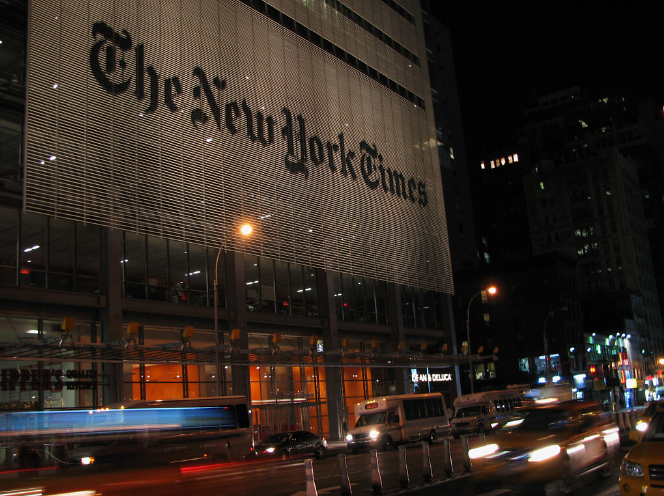
The New York Times is suing Microsoft and OpenAI, accusing them of using millions of articles without permission to train their chatbots CoPilot and ChatGPT, as well as providing copyrighted information to users. The Times is the first major news outlet to sue Microsoft and OpenAI, claiming billions of dollars in losses. It wants the companies to destroy chatbot models and training sets that incorporate its material.
Founded in 2015 by a group of entrepreneurs including Sam Altman, Elon Musk, and Amazon Web Services, ChatGPT is a nonprofit organization dedicated to developing “safe and beneficial” artificial intelligence. The company has developed multiple language models and image generation models. In 2019, OpenAI announced the company was restructuring to include a capped profit arm, which allows the company to combine the benefits of a nonprofit with those of a for-profit company. The design enables the company to continue to follow its mission while raising capital and more closely resemble other AI startups. OpenAI has been valued at over $80 million by investors. In 2019, Microsoft began a partnership with OpenAI and has invested at least $13 billion into the company’s for-profit subsidiary. As part of the partnership, Microsoft’s supercomputers help power OpenAI’s research and Microsoft is also beginning to incorporate OpenAI’s technology into some of its products.
The lawsuit, filed on December 27, is based on material the Times says that Microsoft and OpenAI did not have permission to use. OpenAI and Microsoft have both responded, saying that their use of the copyrighted material is “fair use”, a legal doctrine concerning the unlicensed use of copyrighted material. An OpenAI spokesperson said in a statement that the company is committed to working with media outlets to help them benefit from the technology and respect the rights of content creators.
The New York Times is not the first group to sue the tech giants. Previous lawsuits have been brought forward by David Baldacci, Jonathan Franzen, John Grisham and Scott Turow, and others. In June, more than 4,000 writers signed a letter sent to the CEO’s of multiple tech companies, accusing them of exploiting their work while training chatbots. Danielle Coffey, The News/Media Alliance president and CEO says “Quality journalism and GenAI can complement each other if approached collaboratively, but using journalism without permission or payment is unlawful, and certainly not fair use.” The Times and other media outlets have installed code on their websites to block OpenAI’s web crawler, GPTBot, from searching their websites for content.
OpenAI also signed deals with two different news outlets, The Associated Press and Axel Springer. The deal with Axel Springer allows users of OpenAI’s ChatGPT to receive summaries of selected content from Axel Springer’s different media brands, as well as including links to the original articles.
AI is considered to be a major threat to the news industry, and The Times is claiming the chatbots are threatening their livelihood by stealing billions of dollars of work by its journalists. The lawsuit provides examples from OpenAI’s GTP-4 provided articles hidden behind paywalls on the Times website. Articles include two separate Pulitzer Prize-winning pieces, “Snow Fall: The Avalanche at Tunnel Creek” and an investigation into New York City’s taxi industry that took 18 months to complete. Microsoft’s CoPilot has also output verbatim experts from Times articles. Chatbots have added to the struggle for media organizations to retain their audience and user base, and the Times states that AI threatens high-quality journalism, reducing viewers’ need to visit the publisher’s website and cutting down on advertising and subscription revenue. “These bots compete with the content they are trained on,” said Ian B. Crosby, one of the lead lawyers representing the Times. ChatGPT has also falsely cited sources in multiple instances, which is leading to growing concerns over misinformation.
The lawsuit remains ongoing, and according to media analyst Matthew Scott Goldstein, “This litigation is not going to be resolved any time soon, but when it is, it will shape the landscape and future of publishing.” Legal experts also expect that this will not be the last lawsuit against AI, and some expect the issue to make it to the Supreme Court.
